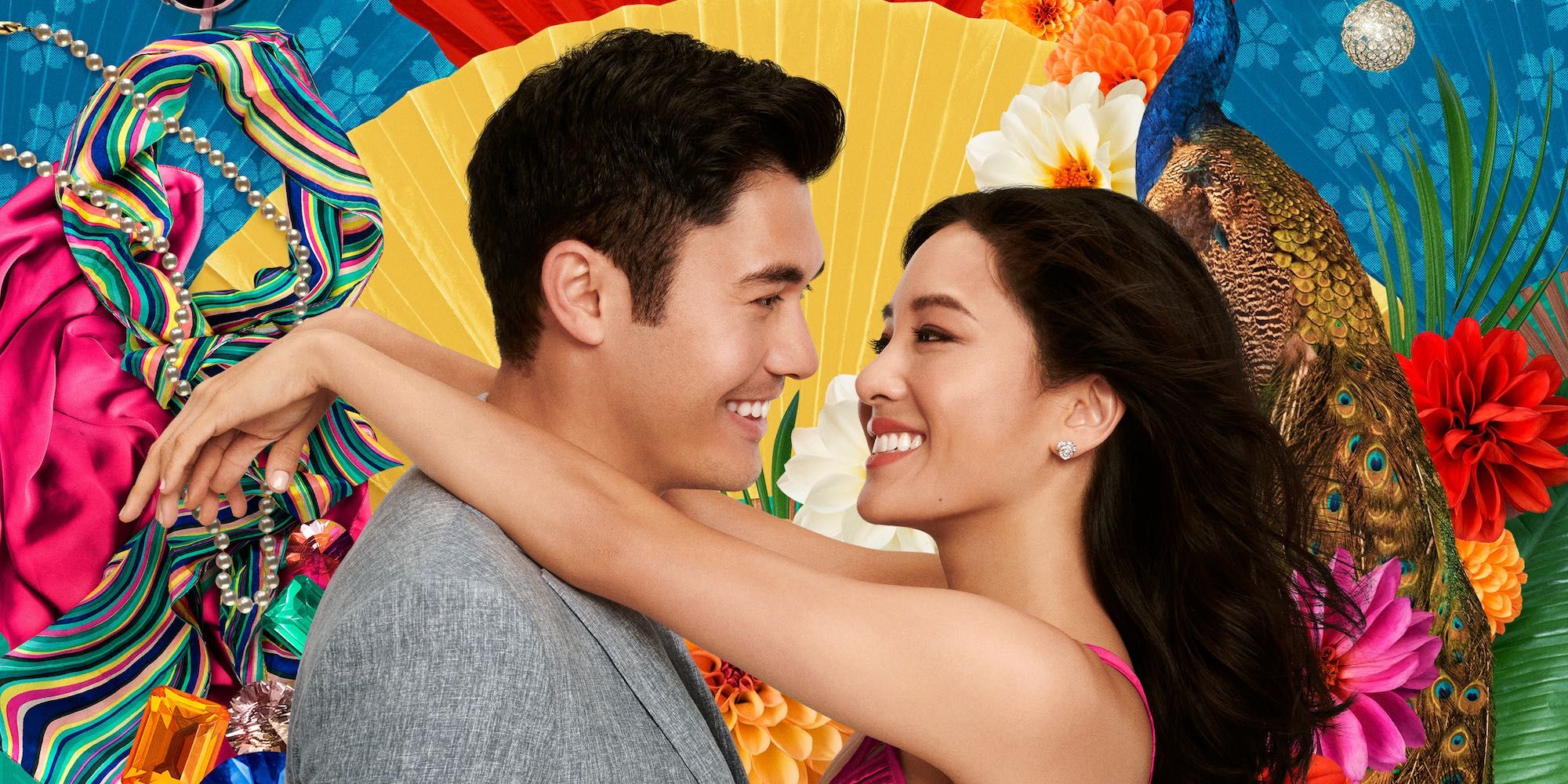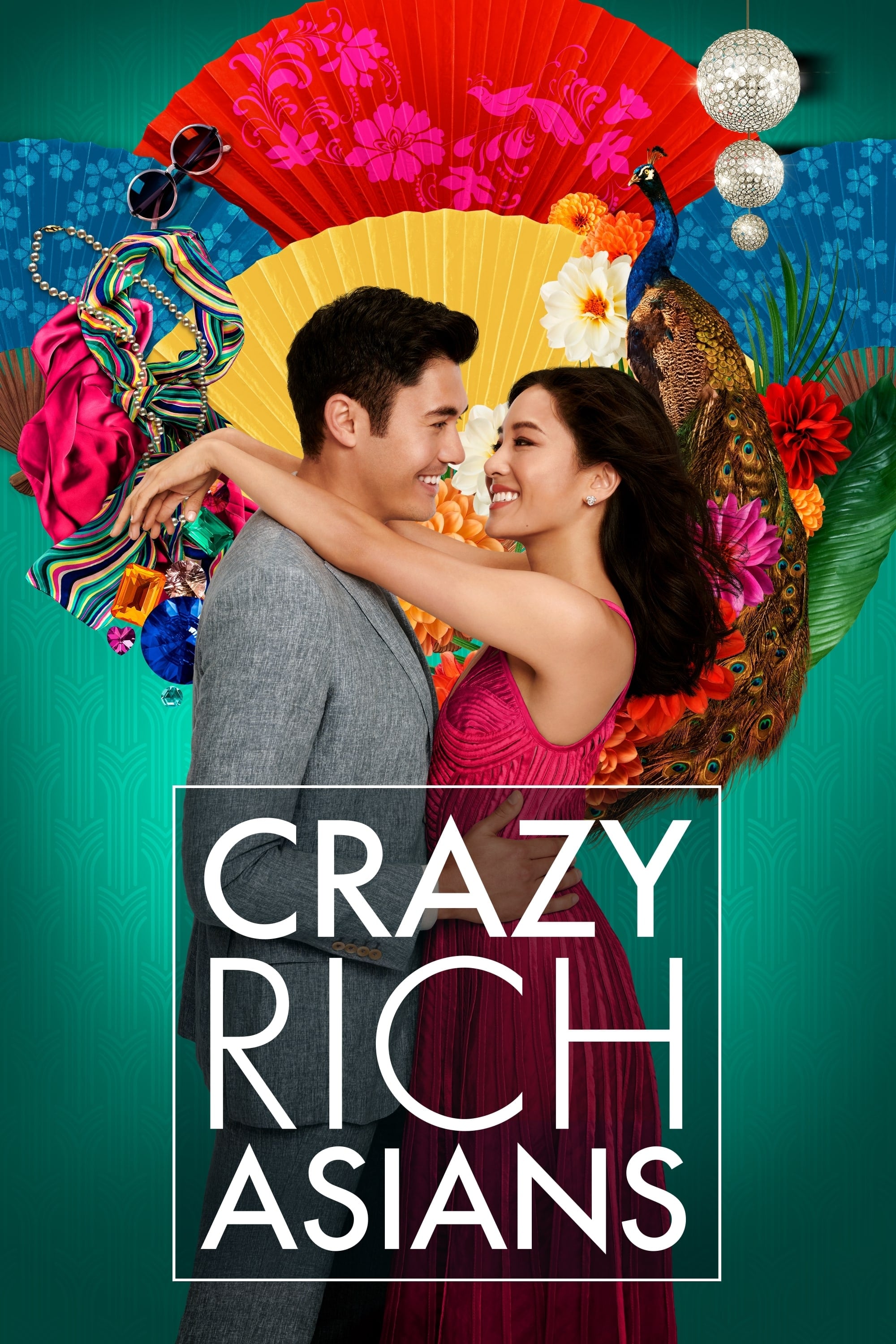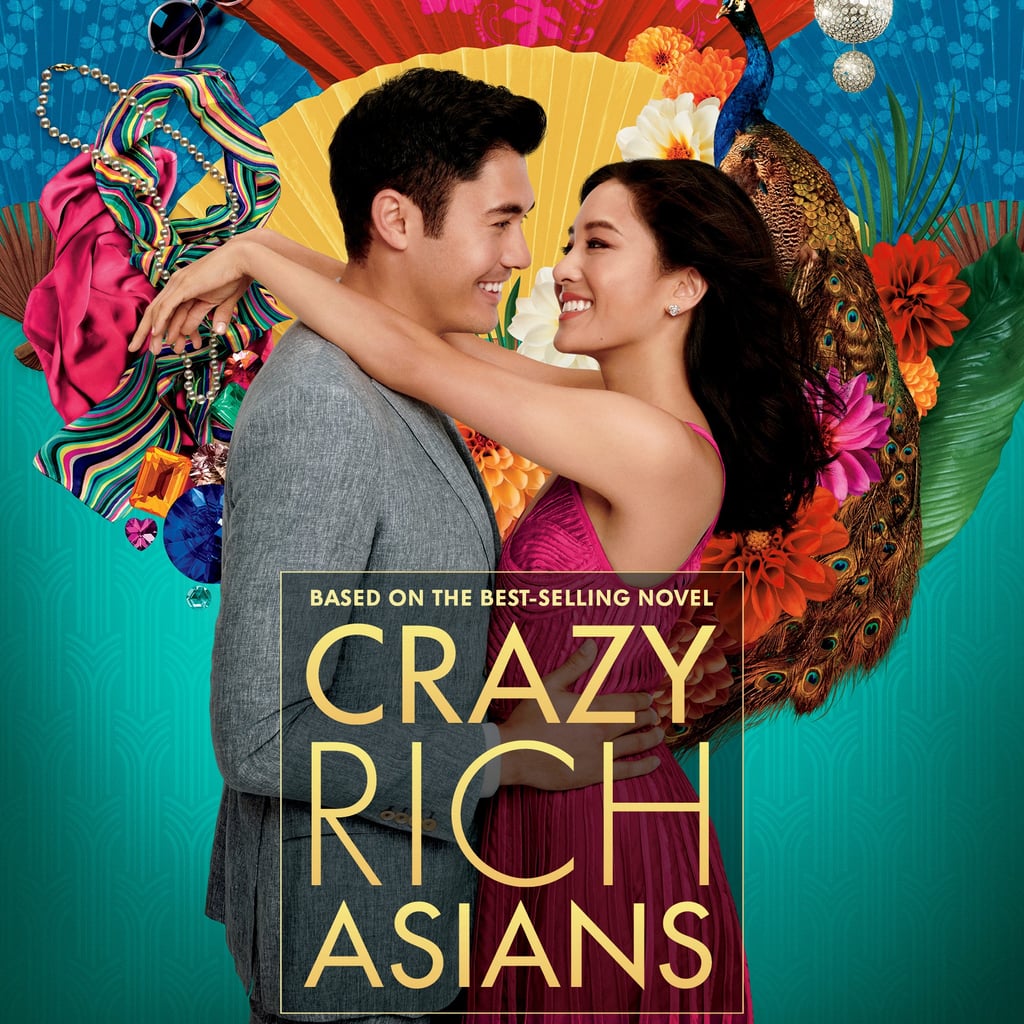Crazy Rich Asians - A Look At Hollywood's Global Hit
The film "Crazy Rich Asians" truly captured a lot of attention, didn't it? It gave many people a peek into a way of life that was, for most, completely out of reach, yet strangely relatable in its core human feelings. This particular movie, a review of "Crazy Rich Asians" if you will, brought a certain kind of sparkle to the big screen, showing off grand parties and family dynamics that were, in some ways, quite familiar, even with all the wealth. It really put a fresh spin on the romantic comedy, making it feel very new and exciting for many viewers around the world.
You see, this story, at its heart, is about a young woman finding her place within a new, incredibly wealthy family, and it’s a story that, honestly, resonates far beyond the lavish settings. It deals with identity, acceptance, and the challenges of love across different social circles. The discussions around this film, and others like "The Joy Luck Club," often touch on how these stories, originally made in Hollywood, found their way to audiences all over the globe, especially in places like China, Malaysia, and the Philippines. It's interesting how these films, like exports of culture, connect with people, showing different aspects of Asian life to a wider audience, and sometimes, too it's almost, reflecting back to those communities themselves.
The appeal of "Crazy Rich Asians" goes a bit deeper than just the fancy cars and clothes, you know. It really struck a chord because it explored themes of tradition versus modern ideas, and the push and pull of family expectations. The way it was produced in Hollywood and then sent out everywhere meant that many different people got to see it, and that, in a way, made it a truly global conversation starter. It was a story about a young woman, and her experiences, which felt quite universal, even with the very specific backdrop of immense wealth. It just shows, in some respects, how a good story can travel.
Table of Contents
- What Makes the Crazy Rich Asian Story So Compelling?
- How Does Crazy Rich Asian Show Us Different Kinds of Wealth?
- What Does Crazy Rich Asian Tell Us About Global Audiences?
- Who Are the Crazy Rich Asians, Really?
What Makes the Crazy Rich Asian Story So Compelling?
When you sit down to watch "Crazy Rich Asians," there's just something about it that pulls you right in, isn't there? It’s not simply the glitz and glamour, though that certainly plays a part. The real magic, in a way, comes from the way it presents human relationships and the challenges that arise when different worlds collide. You have Rachel Chu, a smart, down-to-earth woman, suddenly dropped into a family where money is, well, almost limitless. This contrast creates a lot of the story's charm and its deeper meaning. The film manages to be incredibly funny while also touching on some truly heartfelt moments about family duty, personal happiness, and finding your own worth, even when surrounded by such immense expectations. It’s a story about a person trying to figure things out, which is pretty relatable, honestly, no matter how much money is involved. The way the characters react to each other, the little glances, the big confrontations, it all just feels so real, even in such an unreal setting. It just goes to show, a good story is a good story, you know?
The Characters of Crazy Rich Asian and Their World
The individuals who populate the world of "Crazy Rich Asians" are a big part of why the film works so well. You have Nick Young, who seems to have everything, including an incredibly kind heart, yet he carries the weight of his family's legacy. Then there's his mother, Eleanor Young, a figure of formidable strength and tradition, who truly believes she knows what is best for her son and their family's standing. Her interactions with Rachel are, in some respects, the emotional core of the film, showing a clash of different ways of seeing the world. There are also the many cousins, aunts, and friends, each with their own quirks and personalities, who add so much flavor to the narrative. Some are incredibly supportive, others are a bit more judgmental, but they all contribute to this very rich, very complicated social fabric. It's almost like stepping into a very busy, very grand family gathering where everyone has a part to play. The way these characters are drawn, with their strengths and their flaws, makes them feel like real people, even if their lives are, you know, incredibly extravagant. They are, basically, just people trying to make their way, with a lot more zeroes in their bank accounts.
How Does Crazy Rich Asian Show Us Different Kinds of Wealth?
It's fascinating how "Crazy Rich Asians" doesn't just show "a lot of money," but really explores different shades of it, isn't it? You see the old money, the kind that has been around for generations, with its deep roots and very specific rules. This wealth is often tied to tradition, to family name, and to a certain way of doing things that has stood the test of time. Then there's the newer money, perhaps a bit flashier, more about showing off success. The film gives us a look at how these different types of affluence interact, sometimes smoothly, sometimes with a bit of friction. It's not just about how much someone has, but how they use it, how they live with it, and what it means to them. Nick Young, for example, is blessed with a kind of financial ease, where he always seemed to make the best profit possible with his investments, which just shows a natural knack for handling money. This isn't just about being rich; it's about a whole culture built around it, which is pretty interesting, you know? It really makes you think about what "rich" actually means.
The Unexpected Choices in Crazy Rich Asian
One of the more thought-provoking aspects of "Crazy Rich Asians" comes from the choices the characters make, especially when faced with tough situations. Take the interaction between Rachel and Eleanor, for instance. There's a moment in the story where, frankly, you might expect a certain outcome based on what seems like a logical play, perhaps a straightforward give-and-take. But what happens instead is something different, something that doesn't quite line up with what you might predict if you were just looking at the situation from a purely logical standpoint. Their decision, in that case, isn't just about winning or losing a simple game; it's about deeply held beliefs, family honor, and personal sacrifice. It shows that when emotions, history, and love are involved, people don't always act in the way that seems most efficient or purely self-serving. It's a powerful illustration of how human feelings can truly shift the outcome of a situation, making it far more complex and, in a way, much more real than any simple calculation could suggest. It’s almost like the heart has its own set of rules, you know?
What Does Crazy Rich Asian Tell Us About Global Audiences?
The way "Crazy Rich Asians" was received around the world tells us quite a bit about what people everywhere are interested in seeing on screen, doesn't it? The film, like "The Joy Luck Club" before it, was made in Hollywood, but it truly found a home with audiences far beyond American borders. It was distributed all over, and for Asian countries, such as China, Malaysia, and the Philippines, these films became, in a sense, cultural exports. They offered stories that, while specific to a certain experience, had universal themes that resonated deeply. It shows that there's a real hunger for stories that reflect different cultures and experiences, especially when they are told with heart and humor. People want to see themselves, or aspects of their lives, reflected in the stories they consume, and this movie delivered on that front. It’s a pretty clear sign that good storytelling, with a unique perspective, can truly connect with anyone, anywhere, which is, you know, pretty cool.
Crazy Rich Asian- From Hollywood to the World
The journey of "Crazy Rich Asians" from its Hollywood beginnings to becoming a global phenomenon is a pretty interesting one. It wasn't just a movie; it became a talking point, a cultural moment. The fact that it was produced in Hollywood meant it had a certain level of polish and a broad appeal that helped it cross borders. But its success in places like Japan and other rich Asian countries, where there's already a significant growth in human numbers and an increasing affluence, really highlights its specific resonance. These are places where the themes of tradition, family wealth, and modern identity are particularly relevant. The film managed to capture the attention of a wide variety of people, from those who knew nothing about the world it depicted to those who saw glimpses of their own lives, or at least, their aspirations, within it. It demonstrates, honestly, how stories can bridge cultural divides and create shared experiences, even when they start in one place and then travel everywhere else. It's a powerful thing, really, how a movie can do that.
Who Are the Crazy Rich Asians, Really?
When we talk about the "crazy rich Asians" portrayed in the movie, it's not just about a simple definition of wealth; it's about a whole way of life, isn't it? These are individuals who often come from families with long histories of prosperity, where their fortunes have been built over generations. Their lives are often intertwined with very specific social circles and expectations. They represent a segment of society where tradition and modern living sometimes clash, and where personal desires often come second to family duty and reputation. It's a fascinating look at how wealth can shape identity, relationships, and even the everyday decisions people make. They are, in a way, a group defined not just by their bank accounts, but by their cultural background, their social responsibilities, and their place within a very particular, very close-knit community. It's a lot more than just money, you know; it's a whole world.
Here's a general profile, if you will, of the kind of individuals the film brings to life:
| Aspect | Description |
|---|---|
| Family Heritage | Often from established families with generational wealth. |
| Social Circle | Very exclusive, often interconnected through business and social ties. |
| Cultural Values | Strong emphasis on tradition, respect for elders, and family honor. |
| Lifestyle | Extremely opulent, featuring grand homes, private jets, and designer goods. |
| Education | Typically highly educated, often from top universities globally. |
| Expectations | High pressure to uphold family name, marry well, and continue legacy. |
The Everyday Logic Behind Crazy Rich Asian Decisions
It's interesting to consider the kind of choices these characters make, and the underlying logic that guides them, especially in the world of "Crazy Rich Asians." The film shows us that their decisions aren't always about simple profit or personal gain, but are often influenced by a complex web of family history, social standing, and deeply ingrained cultural norms. For example, a choice that might seem inefficient from a purely economic viewpoint, like a peasant preferring to lower their income to reduce taxes in a historical context, can be seen as a perfectly rational decision when you consider the social pressures and long-term consequences involved. Similarly, the characters in the movie often make choices that prioritize family reputation or long-term stability over immediate gratification. It's about how they select their actions based on a different set of values, a different kind of "operator" if you will, that goes beyond just what makes the most money right now. It's a way of thinking that is, in some respects, very different from what many might expect, and it shows that wealth comes with its own unique set of considerations and complex choices. It’s pretty fascinating, actually, how different people approach what seems like the same problem.

Crazy Rich Asians Movie Review

Crazy Rich Asians (2018) - Posters — The Movie Database (TMDB)

Crazy Rich Asians – Kaleidoscope